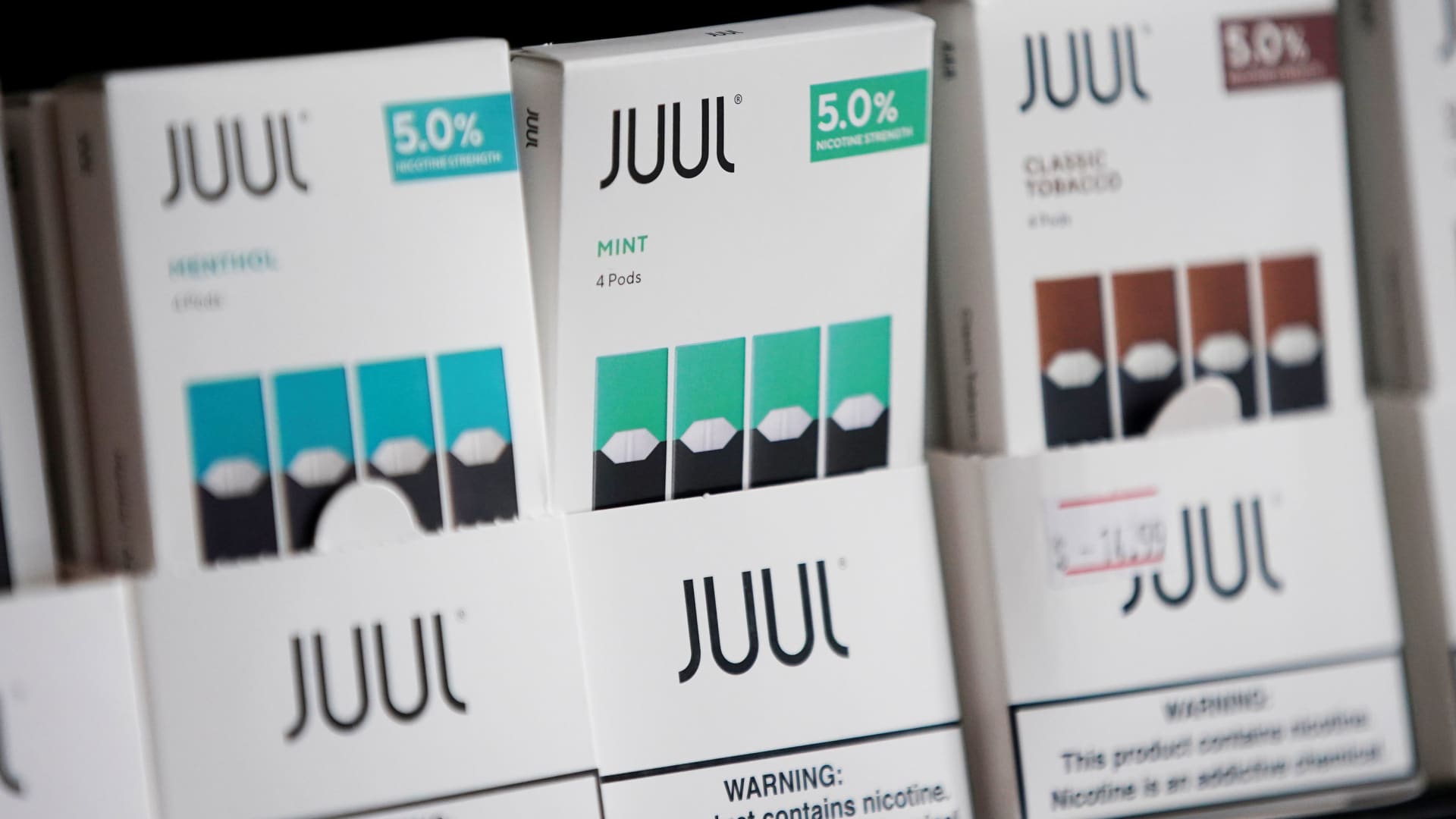Juul will pay $462 million to settle claims by six states and Washington D.C. that the vaping company marketed its addictive e-cigarettes to underage teens, five Democratic attorneys general announced Wednesday.
The agreement is the largest multi-state settlement the company has reached to date, the attorneys general said during a press conference. It means Juul has now settled in suits with 45 states for more then $1 billion.
The deal will impose strict limits on Juul’s sales and marketing abilities, and will force Juul to secure its products behind retail store counters and verify the age of purchasers, the officials added.
The states that reached the settlement with Juul are New York, California, Massachusetts, New Mexico, Illinois and Colorado.
“There is no doubt that Juul played a central role in the vaping epidemic today,” New York Attorney General Letitia James said. “Juul is paying for widespread harm caused and will undergo severe restrictions on its marketing and sales practices.”
The settlement adds to years of heavy scrutiny on Juul, the one-time Silicon Valley darling among both tobacco giants and investors. A string of payouts to both governments and consumers over allegations that it marketed addictive products to teens has hampered the company and left it seeking options to stay afloat.
Juul did not immediately respond to CNBC’s request for comment.
Under the settlement announced Wednesday, California will receive $175.8 million, which will be used for e-cigarette research, education and enforcement, the state’s Attorney General Rob Bonta said. New York will get $112.7 million over an eight-year period, which will support underage vaping abatement programs across the state.
Massachusetts will receive $41.7 million and Colorado will get nearly $32 million.
James said Juul led consumers to believe that its vapes are safer than cigarettes. But one pod of Juul’s e-cigarette contains as much nicotine as a whole pack of cigarettes, she noted.
“Taking a page out of big tobacco’s playbook, Juul misled consumers about the health risks of their products,” she said.
James highlighted the agreement’s crackdown on Juul’s marketing practices. She noted that the company will be barred from funding or operating youth education and prevention campaigns.
The agreement will also force Juul to stop using people under 35 years old in its marketing materials that directly or indirectly target young people, James said.
Teen vaping skyrocketed nationwide after the company launched in 2015, leading the Food and Drug Administration to declare an “epidemic” of underage e-cigarette use just three years later. Parents, school administrators and politicians largely blamed the company for hooking a generation of young people on its high-nicotine pods.
Since then, Juul has been buffeted by lawsuits and state-led investigations over its products and allegedly deceptive marketing practices.
The company on Monday reached a $7.9 million settlement in a West Virginia lawsuit alleging the company marketed products to underage users.
The San Francisco-based company dropped all U.S. advertising and discontinued most of its flavors in 2019.
The FDA also ordered Juul to stop selling its vaping products last June. But it placed a temporary hold on the order a month later, and it is not in effect now.
Those legal and regulatory hurdles have hurt Juul’s bottom line.
The company in November said it secured enough new funding to stave off bankruptcy. But at the time it announced plans to lay off about 400 staff and cut its operating budget by 30% to 40%.
Juul appeared to be exploring other options in January. Company executives were in early stage talks with Philip Morris, Japan Tobacco and Altria about a potential sale, investment or alliance, the Wall Street Journal reported at the time.
More than 3 million middle and high school students used tobacco products last year, according to a report released in November by the FDA and the U.S. Centers for Disease Control and Prevention.
E-cigarettes were the most common tobacco product among those young people, as more than 2.5 million students used them, the report said. It added that youth use of tobacco products in any form is unsafe.
This story is developing. Please check back for updates.
